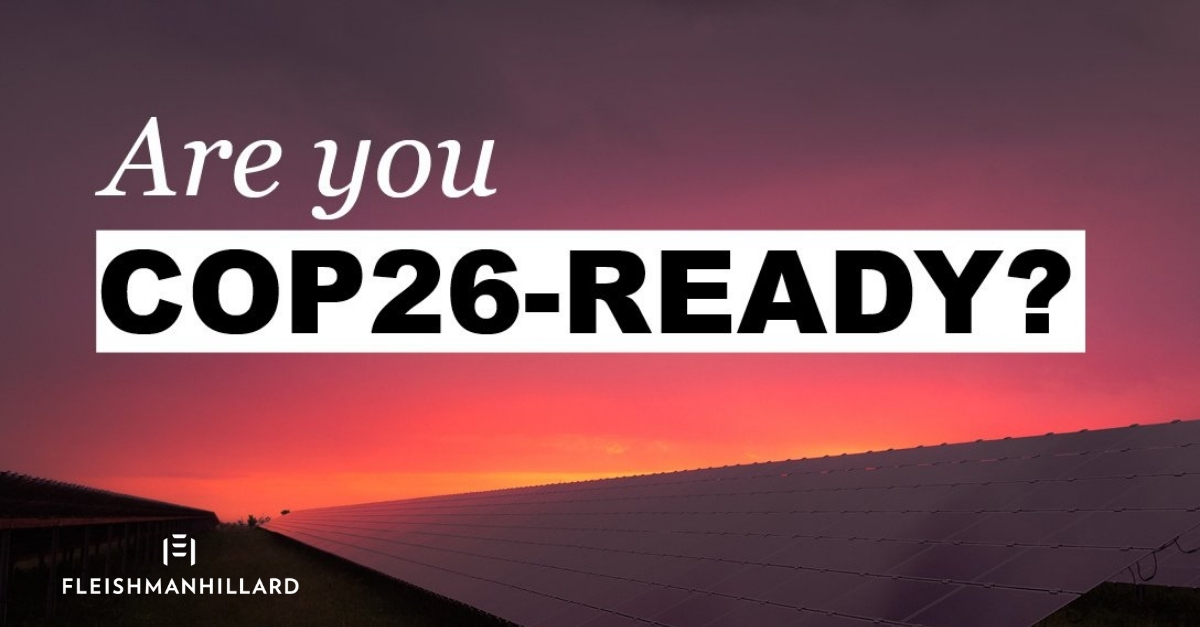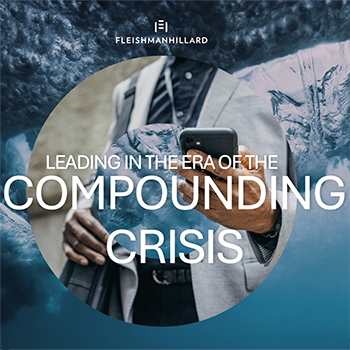Connecting to COP26 – View from Canada
COP26 – The view from Canada from Pierre Cyr, Senior Vice President at FleishmanHillard HighRoad in Ottawa.
OILPATCH BUBBLES IN RESPONSE TO TRUDEAU’S CLIMATE AMBITIONS | COP26 – The view from Canada
Having made his speeches and climate commitments, Canadian Prime Minister Justin Trudeau concluded his participation in the COP26 climate conference on Tuesday along with other heads of state and government.
Now the real climate negotiations begin as diplomats carry out their leaders’ marching orders, but the question remains – what will Trudeau’s commitments mean for Canadians?
Like most G20 nations, climate change remains a focal point for Canadians, with many eager for results in reducing emissions by 2030 in accordance with the Paris Agreement.
While climate activists generally applauded the Prime Minister’s commitments during the summit – such as ending deforestation, reducing methane emissions, and assisting clean energy transition – many are waiting to see real action from a government unwilling to divorce resource-rich Canada from its fossil fuel industries.
Ahead of COP26, the country’s federal Green Party called on the Prime Minister to boost Canada into a leadership position at the summit and demonstrate that Canada is “turning over a new leaf” by implementing bold changes, such as cancelling existing pipeline projects.
Two other federal opposition parties, the NDP and Bloc Québécois, echoed the Greens’ call for Canadian leadership and warned against “symbolic gestures.”
Given Canadians just recently re-elected another minority Liberal government, climate action is a focal point as Parliament is set to resume on 22 November and a throne speech is introduced.
In addition to navigating the complexity of a minority parliament, Trudeau faces challenges from political and business stakeholders digging in their heels, calling for collaboration to avoid hampering the energy sector.
Following the Prime Minister’s pledge on Monday to cap oil-and-gas emissions, the provincial leader of Canada’s largest oil producer, Alberta Premier Jason Kenney, denounced the move for not having his endorsement, claiming Trudeau will need Alberta’s help to meaningfully reduce greenhouse gases. Premier Kenney urged the Prime Minister to come to the negotiating table and hear Alberta’s ideas to curb emissions, including carbon-capture technologies and the development of energy sources such as blue hydrogen.
Canadians generally agree more action is needed to fight climate change, but there is a clear gap between the general public and Canada’s fossil fuel industry. As both sides brawl over the issue, Canadians will look to Trudeau for climate leadership that delivers meaningful results to combat the climate crisis while supporting Canada’s energy sector.
While Trudeau’s COP26 commitments appear substantial, the question remains – will it be enough?
This ‘Connecting to COP26’ series is brought to you by the FleishmanHillard Cop26 Unit as part of the COP26 Daily Digest. For more information, please contact the FleishmanHillard COP26 team.
FleishmanHillard COP26 Preview
FLEISHMANHILLARD COP26 DAILY DIGEST: DAY 2
FLEISHMANHILLARD COP26 DAILY DIGEST: DAY 3
FLEISHMANHILLARD COP26 DAILY DIGEST: DAY 4
Find Out More
-
Leading in the era of the compounding crisis
October 2, 2025
-
AI in the Newsroom
August 26, 2025



